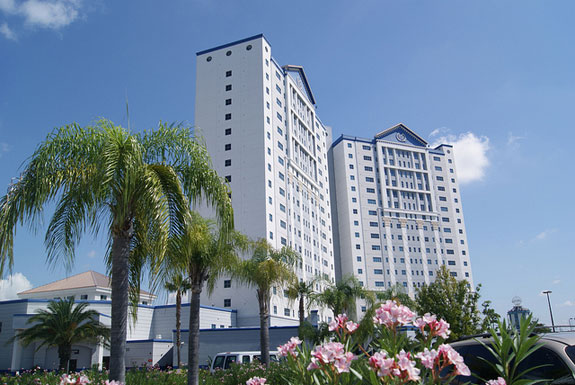
The state Attorney General's Office received 12,257 complaints about Florida timeshare resale companies in 2010. (Photo: Flickr.)
By Howard Goodman
Florida Center for Investigative Reporting
Timeshare resale schemes have become the biggest consumer fraud in Florida. And regulatory bodies aren’t keeping up.
The state Attorney General’s Office received 964 complaints against Florida timeshare resale companies in 2008 — from people across the United States and overseas. Then 2,929 in 2009. Then 12,257 in 2010.
So says an exhaustive investigative report from the Tampa Bay Times. Reporters pored over thousands of those complaints, then spent months asking questions about timeshare resale companies and the state regulator and law enforcement agencies that are supposed to be policing them. They interviewed more than 100 people: victims, company employees and government workers.
As staff writers Will Hobson and Caryn Baird explain, telemarketers working from nondescript offices across the state work the phones to reach timeshare owners and tell them they’ll sell their unwanted units.
Who’d they call?
- A California man with dementia and got him to spend hundreds.
- A Washington woman, drowsy on pain pills and dying of cancer, and charged thousands.
- A desperate Kentucky man who couldn’t say no, and took his life savings.
The newspaper found that the fraud is rarely prosecuted. Instead, the Attorney General’s Office opts for settlement agreements that allow the companies to stay in business without admitting wrongdoing. The agreements have recaptured about $6 million — “a fraction of the money victims have lost.”
In one case that was prosecuted, a federal judge in January sentenced former Palm Beach County resident Jennifer Kirk to 15 years in prison. Federal prosecutors contended that Kirk ran a network of South Florida companies that made $30 million from some 22,000 victims nationwide in just two years, until December 2009. According to the complaint, her telemarketers promised to sell the victims’ timeshare units, telling the lie that buyers were lined up, and collecting $1,200 to $3,000 for purported closing costs. The companies never sold a single timeshare unit.
The fraud thrives, the reporters found, because timeshares are notoriously difficult to resell and because state regulators fail to make routine background checks, allowing ex-convicts to get into the telemarketing business, and renewed licenses for firms that had already been fined for breaking the law.
Hobson is a 27-year-old reporter who covers the St. Petersburg-area city of Largo for the Times. He said he came up with the story idea last summer. Largo is the home of several timeshare resale companies, he said, that have attracted great numbers of complaints, many from around the country, and some of them “quite poignant.”
“I did some research and realized something — no one had written about this extensively,” he said in an email. “Which I found quite amazing, given the thousands of people this was apparently affecting. So I pitched it as a project, got the OK from my editors and dove in head first.”
His editors teamed him up with Baird, a skilled researcher who dug up background information on all the companies and officials they researched.
The story appeared in Sunday’s print edition.
“The emails that have come in from victims across the country have reminded me why I wanted to do this story in the first place,” Hobson said yesterday. “I hope the story helped prevent this from happening to others.”
